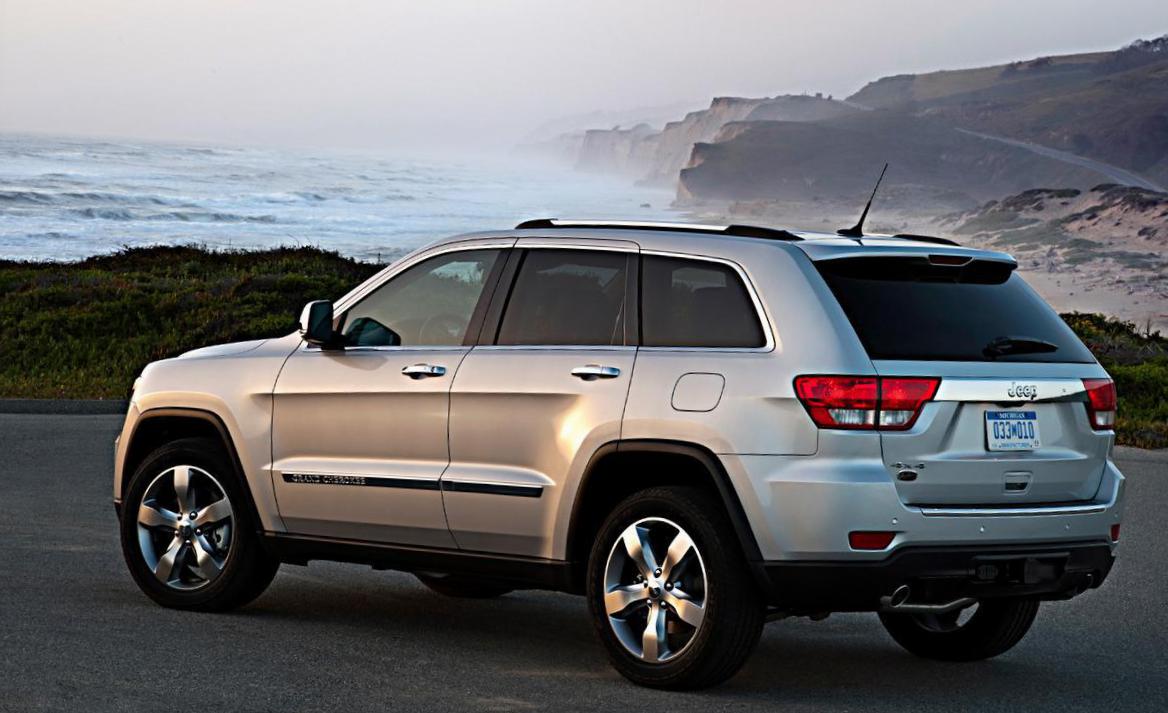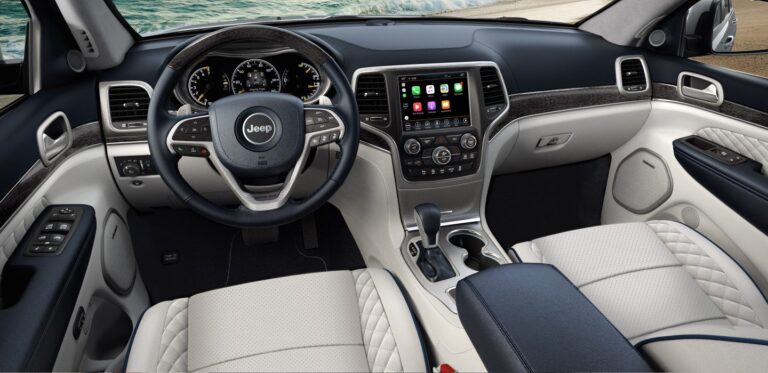Jeep Cherokee Lease Takeover: Your Comprehensive Guide to Smart Mobility
Jeep Cherokee Lease Takeover: Your Comprehensive Guide to Smart Mobility jeeps.truckstrend.com
The automotive landscape is constantly evolving, offering consumers more flexible options than ever before. Among these, the concept of a "lease takeover" has emerged as a particularly attractive solution for those seeking short-term vehicle access or an escape from long-term commitments. When it comes to popular SUVs, the Jeep Cherokee, known for its rugged capability, comfortable interior, and distinctive styling, frequently appears on lease transfer platforms.
This comprehensive guide, "Jeep Cherokee Lease Takeover," aims to demystify the process, illuminating its benefits, challenges, and providing actionable insights for both individuals looking to exit a lease and those eager to step into a quality vehicle without the traditional burdens of a new car purchase or a long-term lease. Whether you’re a current Jeep Cherokee lessee facing changing circumstances or an enthusiast looking for a flexible way to drive this iconic SUV, understanding the nuances of a lease takeover can unlock significant advantages.
Jeep Cherokee Lease Takeover: Your Comprehensive Guide to Smart Mobility
What is a Lease Takeover? And Why a Jeep Cherokee?
At its core, a lease takeover, also known as a lease assumption or lease transfer, is an arrangement where one individual (the "transferee" or "new lessee") assumes the remaining terms and obligations of an existing vehicle lease from another individual (the "transferor" or "original lessee"). Instead of the original lessee paying early termination fees, which can be substantial, a new party steps in to continue the monthly payments, adhere to mileage limits, and ultimately return the vehicle at the end of the term.
For the Jeep Cherokee specifically, lease takeovers are particularly appealing for several reasons:
- Popularity and Demand: The Jeep Cherokee is a highly sought-after SUV, balancing off-road prowess with urban practicality. Its consistent demand makes it easier to find someone willing to take over a lease.
- Diverse Trims: With a range of trims from the economical Latitude to the adventurous Trailhawk and luxurious Limited, there’s a Cherokee to suit various needs, increasing the likelihood of a match between original and new lessees.
- Cost-Effectiveness: Often, lease takeovers involve little to no down payment for the new lessee, and monthly payments can be lower than those for a brand-new lease, especially if the original lessee made a significant upfront payment.
- Flexibility: It offers a way to drive a relatively new vehicle for a shorter term than a typical 36-month lease, allowing for greater flexibility in future vehicle choices.

Benefits of a Jeep Cherokee Lease Takeover
Lease takeovers offer a win-win scenario for both parties involved:
For the Original Lessee (Transferor):
- Avoid Early Termination Penalties: This is the primary motivator. Breaking a lease prematurely can result in thousands of dollars in fees, including remaining payments, disposition fees, and penalties for exceeding mileage or wear and tear. A takeover allows you to avoid these costs.
- Preserve Credit Score: Walking away from a lease can negatively impact your credit. A successful transfer ensures your credit remains intact as you fulfill your financial obligation by finding a replacement.
- Freedom from Unwanted Vehicle: Life changes – a new job, a growing family, a move, or simply a change of heart about the vehicle – can make a lease unsuitable. A takeover offers a clean exit.
- Potential for Incentives: In some cases, the original lessee might offer a cash incentive to make their lease more attractive, effectively reducing their overall loss.

![]()
For the New Lessee (Transferee):
- Lower Monthly Payments: Often, the initial lessee may have negotiated a great deal, made a large down payment, or the market value of the car has depreciated less than anticipated, leading to lower monthly payments for the new lessee.
- No or Low Down Payment: Unlike new leases that often require substantial upfront costs, most lease takeovers require minimal or no down payment, making them more accessible.
- Shorter Lease Term: You get to drive a relatively new vehicle for a shorter duration (e.g., 6, 12, or 18 months) compared to the standard 24-36 month new lease, offering more flexibility.
- Factory Warranty Coverage: Since you’re taking over an existing lease, the vehicle is typically still under its original factory warranty, covering potential repair costs.
- Well-Maintained Vehicle: Leased vehicles are usually well-maintained due to lease return conditions, meaning you’re likely getting a car in good shape.
- Try Before You Buy: A shorter lease term is an excellent way to experience a Jeep Cherokee and determine if it fits your lifestyle before committing to a longer-term purchase or lease.
How to Initiate a Jeep Cherokee Lease Takeover (For the Original Lessee)
If you’re looking to offload your Jeep Cherokee lease, follow these steps:
- Contact Your Leasing Company: This is the crucial first step. Companies like Chrysler Capital (for most new Jeeps), Ally, or others will have specific policies and procedures for lease transfers. Inquire about:
- Whether lease transfers are permitted.
- Any associated transfer fees.
- The required credit score for the new lessee.
- The exact payoff amount and remaining lease terms.
- Required documentation.
- Gather All Lease Details: Compile accurate information:
- Remaining monthly payments and total remaining balance.
- Original lease term and remaining months.
- Current mileage and total mileage allowance (and any potential overage).
- Vehicle condition (interior, exterior, tires).
- Any specific features, trim level, or packages.
- Prepare Your Vehicle: Ensure your Jeep Cherokee is clean, well-maintained, and free of excessive wear and tear. Take high-quality photos from various angles, highlighting its features and condition.
- Advertise Your Lease: Utilize reputable online lease takeover platforms such as LeaseTrader.com, Swapalease.com, or even local classifieds and social media groups. Be transparent and provide all details. Consider offering an incentive (e.g., covering the transfer fee or a cash bonus) to attract interest.
- Vet Potential Transferees: Engage with interested parties. Be prepared to answer questions honestly. Once a serious candidate emerges, direct them to the leasing company to begin their credit application.
- Complete the Paperwork: Once the new lessee is approved, the leasing company will facilitate the transfer paperwork. Both parties will need to sign, and the transfer fees will be paid. Ensure you receive confirmation that the lease is officially transferred out of your name.
How to Find and Take Over a Jeep Cherokee Lease (For the New Lessee)
If you’re on the hunt for a Jeep Cherokee lease to take over, here’s your guide:
- Search Online Platforms: Start your search on dedicated lease takeover websites like Swapalease and LeaseTrader. These platforms allow you to filter by make, model (Jeep Cherokee), monthly payment, remaining term, and location.
- Identify Suitable Listings: Look for Jeep Cherokee models that match your desired trim, features, mileage allowance, and budget. Pay close attention to the remaining term – do you want a short-term commitment or something a bit longer?
- Due Diligence – Research and Verify:
- Vehicle Inspection: Schedule a thorough inspection of the Jeep Cherokee. Check for excessive wear, dings, dents, tire wear, and interior condition. Consider having an independent mechanic inspect it.
- Vehicle History Report: Obtain a CarFax or AutoCheck report to check for accidents, service history, and title issues.
- Verify Lease Terms: Independently verify all lease details (monthly payment, remaining term, mileage allowance, residual value, transfer fees) directly with the leasing company. Do not solely rely on the original lessee’s information.
- Credit Application: Once you’ve found a suitable Jeep Cherokee and confirmed all details, the leasing company will require you to complete a credit application. Your credit score and financial stability will be assessed.
- Transfer Fees and Finalization: If approved, you will be responsible for paying the lease transfer fees (unless the original lessee has offered to cover them). Sign all necessary paperwork with the leasing company. Ensure the transfer is officially completed and the vehicle is registered in your name for the remainder of the lease term.
Important Considerations Before a Jeep Cherokee Lease Takeover
Before committing to a lease takeover, both parties must be aware of several critical factors:
- Mileage Limits: This is perhaps the most significant consideration for the new lessee. Understand the original annual mileage allowance and how much mileage has already been used. If you anticipate exceeding the remaining allowance, you will incur overage fees at the end of the lease, which can be substantial (e.g., $0.20-$0.25 per mile).
- Wear and Tear: The vehicle must be returned to the leasing company in good condition, as defined by their "normal wear and tear" guidelines. Excessive damage will result in charges. The new lessee inherits this responsibility, so a thorough inspection is crucial.
- Leasing Company Policies: Not all leasing companies allow transfers. Some might have strict requirements, high transfer fees, or specific procedures. Always confirm directly with the lessor.
- Financial Scrutiny: The new lessee must pass a credit check conducted by the leasing company. They are taking on a significant financial obligation.
- Residual Value: Understand the vehicle’s residual value – the estimated value at the end of the lease term. This is the price you would pay if you decide to buy the Jeep Cherokee outright. While not immediately relevant, it’s good to know if it’s a fair price if you consider purchasing.
- Maintenance History: Inquire about the vehicle’s service history. A well-maintained vehicle is less likely to incur unexpected repair costs, though it will likely still be under warranty.
- State Regulations: Be aware of any specific state laws or taxes related to lease transfers, as these can vary.
Tips for a Successful Jeep Cherokee Lease Takeover
- Transparency is Key: For the original lessee, be completely honest about the vehicle’s condition, mileage, and any past issues. For the new lessee, be clear about your financial situation and expectations.
- Detailed Documentation: Keep records of all communications, agreements, and paperwork.
- Independent Verification: New lessees should always verify all lease terms and vehicle details directly with the leasing company and through independent reports (e.g., CarFax).
- Negotiate (Respectfully): While lease terms are fixed, you might negotiate incentives. Original lessees can offer cash; new lessees can ask for the original lessee to cover transfer fees.
- Use Reputable Platforms: Stick to well-known lease transfer websites that offer secure processes and support.
- In-Person Inspection: Always, if possible, inspect the vehicle in person before committing.
Potential Challenges and Solutions
- Challenge: Finding a Suitable Match.
- Solution: Broaden your search parameters, offer incentives (for original lessee), or be patient.
- Challenge: Leasing Company Restrictions.
- Solution: Confirm policies early. If a company doesn’t allow transfers, you’ll need to explore other options like early buyout or private sale.
- Challenge: Unexpected Fees.
- Solution: Get a full breakdown of all transfer fees, disposition fees, and potential wear-and-tear charges from the leasing company upfront.
- Challenge: Vehicle Condition Disputes.
- Solution: Conduct a thorough pre-takeover inspection. Take detailed photos and videos. Consider a third-party inspection.
- Challenge: Credit Approval Issues.
- Solution: New lessees should check their credit score beforehand. If it’s borderline, consider a co-signer if the leasing company allows it.
Illustrative Jeep Cherokee Lease Takeover Pricing Table
Please note: The prices below are illustrative examples only and do not represent actual market values. Actual lease takeover costs vary wildly based on original lease terms, market conditions, vehicle trim, mileage, and condition.
| Scenario Type | Jeep Cherokee Trim | Original Lease Term (Months) | Remaining Term (Months) | Original Monthly Payment | Remaining Mileage (Miles) | Transfer Fee (Est.) | Down Payment (for new lessee) | Notes / Potential Savings |
|---|---|---|---|---|---|---|---|---|
| Short Term, Low Cost | Latitude FWD | 36 | 10 | $280 | 8,000 | $350 | $0 | Great for short-term needs; potential savings over new lease for 10 months. |
| Mid-Term, Balanced | Limited 4×4 | 42 | 18 | $350 | 15,000 | $400 | $0 – $500 | Good balance of term and features; might include a small incentive from original lessee. |
| Longer Term, Feature Rich | Trailhawk 4×4 | 36 | 24 | $410 | 20,000 | $450 | $500 – $1,000 (if incentive) | Ideal for those wanting more commitment to a premium trim; potentially lower than a new Trailhawk lease. |
| High Mileage, Reduced Cost | Sport FWD | 39 | 15 | $250 | 3,000 | $300 | $0 (Original lessee pays $500 incentive) | Good if you drive less; original lessee offers incentive due to low remaining mileage. |
Disclaimer: All figures are approximate and for demonstration purposes only. Always verify all costs and terms with the leasing company and the original lessee.
Frequently Asked Questions (FAQ) about Jeep Cherokee Lease Takeover
Q1: Is a lease takeover the same as buying a used car?
A1: No. When you take over a lease, you are assuming the lease agreement, not buying the vehicle outright. You will make monthly payments for the remaining term and return the car at the end of the lease, or have the option to buy it at its residual value.
Q2: What credit score do I need to take over a Jeep Cherokee lease?
A2: Most leasing companies require a good to excellent credit score, typically 670 FICO or higher, to approve a lease transfer. The exact requirement varies by lessor.
Q3: Are all Jeep Cherokee leases transferable?
A3: No. Lease transfer policies vary by leasing company. Chrysler Capital, Ally, and other major lessors often allow transfers, but always confirm directly with the specific company holding the lease.
Q4: Who pays the lease transfer fees?
A4: This is negotiable. Typically, the new lessee pays the transfer fees as part of assuming the lease. However, the original lessee might offer to cover these fees (or a portion of them) as an incentive to make their lease more attractive.
Q5: What happens if the new lessee defaults on payments?
A5: Once the lease is officially transferred and the new lessee is approved, the original lessee is typically released from all financial responsibility. The new lessee becomes solely responsible for the lease obligations. Always ensure you receive official documentation from the leasing company confirming the full transfer of liability.
Q6: Can I negotiate the terms of a lease takeover?
A6: You cannot change the terms of the existing lease (e.g., monthly payment, remaining term, mileage allowance). However, you can negotiate incentives with the original lessee, such as them paying the transfer fee or offering a cash incentive to make the deal more appealing.
Q7: What happens at the end of the lease takeover term?
A7: As the new lessee, you will have the same options as an original lessee:
- Return the Jeep Cherokee to the dealership (subject to mileage and wear/tear charges).
- Purchase the vehicle at the pre-determined residual value.
- Lease a new vehicle.
Concluding Summary
A Jeep Cherokee lease takeover represents a highly flexible and often cost-effective avenue for both current lessees seeking an exit strategy and prospective drivers looking for a shorter-term commitment to a quality SUV. For the original lessee, it’s a smart way to avoid burdensome early termination penalties and maintain a healthy credit profile. For the new lessee, it offers the compelling advantages of lower monthly payments, minimal upfront costs, and the opportunity to drive a modern, well-maintained Jeep Cherokee for a flexible duration.
Success in a lease takeover hinges on thorough research, transparent communication, and meticulous due diligence. By understanding the process, being aware of potential pitfalls, and utilizing reputable resources, navigating the world of Jeep Cherokee lease takeovers can be a remarkably smooth and rewarding experience, offering a smart alternative in today’s dynamic automotive market.







